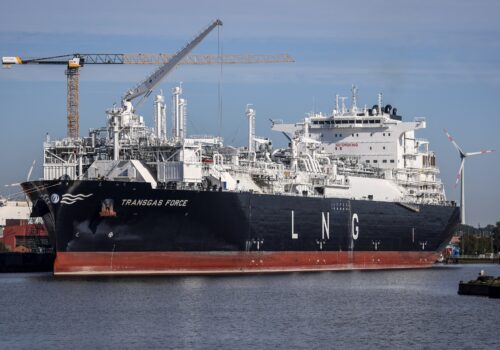Natural gas and the energy transition: Security, equity, and achieving net zero
Executive summary
Within the short span of three years, the global economy has needed to contend with the COVID-19 pandemic, subsequent inflation, the Russian invasion of Ukraine, and the impact of that conflict on commodity shortages, rising energy costs, and declining energy security. As a result, short-term reliance on fossil fuels has increased, fewer resources are available for the energy transition, and coordination among regional and global partners has become more complicated. In the longer term, the crisis underscored the dangers of reliance on fossil fuel imports and exposure to price volatility.
All of this augers broadly for accelerating the energy transition. But narrow approaches to the transition run the risk of curtailing existing energy sources before viable alternatives are sufficiently scaled and integrated.
In their crudest form, policies to incentivize investment into decarbonization are based on categorizing energy sources as either “clean” or “dirty”—despite a wide range of emissions implications depending on the particular energy source. In the case of natural gas, the reality is that there are gradations of “clean.”
Alternatives also matter. Gas replacing coal or upgrading older gas-fired turbines to highly efficient modern ones are major wins. But greenfield unabated gas-fired generation will not be sustainable and will often be more costly than the renewable alternative.
Even under a credible net-zero scenario, gas demand will likely persist, both for technical reasons and to create low-carbon fuels like blue hydrogen. In the medium term, natural gas can be part of a solution in which sustainable economic development is a corollary (or prerequisite) to climate action. In developing countries where industrial activities are a source of growth and are particularly effective at addressing poverty, such development can equip societies with the resources and space to address climate concerns.
About the author
Phillip Cornell is a nonresident senior fellow at the Atlantic Council’s Global Energy Center. He is a specialist on energy and foreign policy, global energy markets and regulatory issues, critical energy infrastructure protection, energy security strategy and policy, Saudi Arabian oil policy, Gulf energy economics, and sustainable energy transition policy. He currently leads the global practice for energy and sustainability at Economist Impact, part of the Economist Group.
Related content

The Atlantic Council in Turkey aims to promote and strengthen transatlantic engagement with the region by providing a high-level forum and pursuing programming to address the most important issues on energy, economics, security, and defense.

The Global Energy Center develops and promotes pragmatic and nonpartisan policy solutions designed to advance global energy security, enhance economic opportunity, and accelerate pathways to net-zero emissions.
Image: Gas pipes are seen at Gas Connect Austria in Baumgarten, Austria, September 28, 2022. REUTERS/Lisa Leutner

